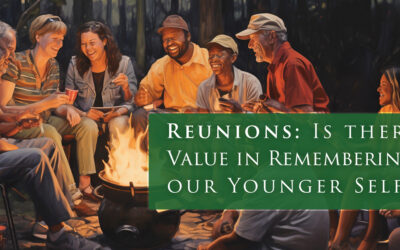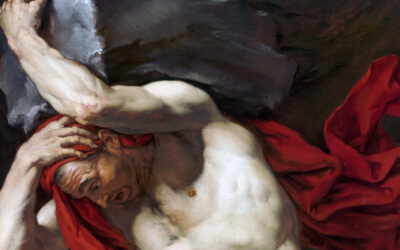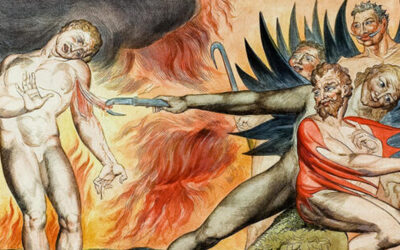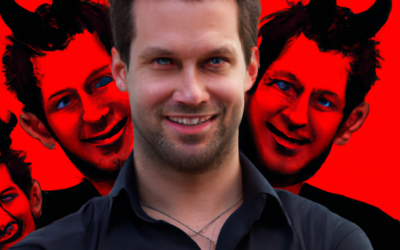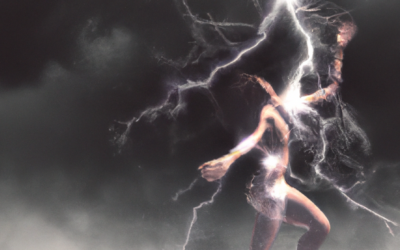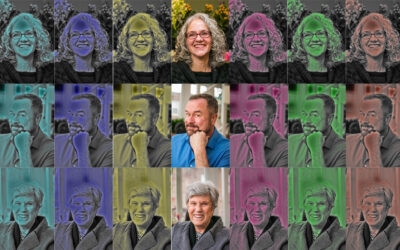Many people just can’t rally to do what’s necessary and improve their lives. Is it possible they just don’t carry much vitality or is some inner conflict blocking their access? We share personal stories of ‘energy loss,’ and offer insights into purposelessness. Jung tells us inner energy flows according to its own laws but if we can’t harness it?
REUNIONS: Is there value in remembering our younger selves?
Oct 12, 2023
We organize reunions because we yearn to reconnect with old friends, recall shared experiences, and reignite a sense of community. We all need meaningful social contact and enjoy nostalgia. While coming together can feel alluring, actually attending the event may evoke a spectrum of ambivalent feelings. We’re likely to feel judged for our achievements, appearance, or socioeconomic status, especially compared to our peers. Transitioning into adulthood is often tumultuous, marked by intense negative experiences, and revisiting those periods can be daunting. Attending reunions can inadvertently reactivate traumatic memories, making the decision to participate a delicate one for many of us. Seeing a former bully or revisiting a dorm can bring back the anxiety, fear, loneliness, or sadness of those formative years. We might even find ourselves sweating or feeling trapped. Recognizing and validating our fears is crucial.
You’re Not a Fraud: Overcoming Imposter Syndrome
Aug 10, 2023
Imposter syndrome constellates the gut-wrenching fear of being exposed as a fraud no matter how much we have learned or the successes we have demonstrated. In 1978 two researchers identified and explored a painful phenomenon among some high-achieving women. Despite their high levels of success, they were convinced they were not as competent, intelligent, or skilled as others might think. Instead of identifying with their capabilities, they often attributed their success to luck, personal persuasion, or an unanticipated burst of energy. Further research revealed this struggle was equally distributed among men and women.
Hypochondria’s Havoc and the Quest for Reassurance
Jun 29, 2023
What sets hypochondriasis apart from merely being cautious about one’s health? The answer lies in the severity of the worry and its impact on everyday life. An individual with hypochondriasis lives with constant, debilitating fear; it is not a fleeting concern. As IAD progresses, it becomes a lens through which they see their life, leading to significant distress and impaired functioning.
Our Moral Compass: Understanding Guilt, Remorse, & Atonement
Jun 22, 2023
A sudden pang in the chest, a quiet voice persistently whispering at the back of our mind, we experience guilt when our actions, or deliberate lack thereof, infringe upon our personal ethical code or societal norms. As human beings, we constantly interact with a myriad of emotions, but guilt often demands our immediate attention. It is the subjective experience of violating moral, social, or self-imposed standards. Our lens shapes these standards, tinted by inherited beliefs, imparted values, and personal experiences. When we feel we’ve crossed these lines, guilt steps in, a vehement alarm.
SHADOWS & HIGH STAKES: Understanding Gambling
May 25, 2023
Understanding gambling can help us navigate the treacherous currents of desire, risk, and reward that define our relationship with this capricious world. The enigmatic nature of gambling captivates our imagination, drawing us towards the hypnotic dance of fortune and chance. From ancient Mesopotamian ‘knucklebones’ to the neon-lit casinos of Las Vegas, its allure permeates human history. Together we’ll weave through the gambler’s psyche to unveil the psychospiritual underpinnings that draw us toward Lady Luck.
THE DARK TRIAD: tracking wolves in our midst
Apr 27, 2023
Understanding the Dark Triad can help us navigate mysteriously troubled relationships in all spheres of life. Psychologists coined the term to describe a trifecta of malevolent personality traits: narcissism, machiavellianism, and psychopathy. Although less sinister than any one full-blown personality disorder, it still affects the soul plagued by it and those in reach of its host.
THE WHALE: a film about trauma, obesity, and the undying hope to connect.
Apr 13, 2023
We are born with the drive to connect meaningfully with our caregivers and the world around us. When that is thwarted by fate, deprivation, or misdeeds, our psyche rallies to save us. It redirects our instincts to the imaginal world where archetypal forces can care for us, and our intolerable feelings can be hidden in a cast of inner characters. We still long for compassionate connection, but the inner figures of our caregivers are intolerable, so sometimes the divine mother hides herself in food—and we follow.
SCHADENFREUDE: Why do we enjoy seeing others fail?
Mar 23, 2023
If we’re completely honest, there’s a dark delight in seeing someone embarrass themselves, especially if we think they deserve it. So, when our irritating boss stomps by our cubicle trailing a few feet of toilet paper from his shoe or a controversial politician is caught in a sexual picadillo, we’re likely to stifle a laugh or at least enjoy a self-satisfied sigh. This joy in someone’s shame or misfortune is called schadenfreude.
BIPOLAR DISORDER: A Jungian Perspective
Jan 19, 2023
Imprisoned by the sea with his son Icarus, mythological craftsman Daedalus constructed wings to escape. Beeswax held feathers in place, so Daedalus told Icarus not to fly too high or too low: the sun’s heat would melt the wax and sea spray would weigh the wings down. Elated, Icarus flew too high–and fell. Like Icarus, the moods of people with bipolar disorder swing from soaring into mania to sinking into depression.
Best of This Jungian Life 2022
Jan 5, 2023
New Year is a global time of celebration and self-reflection. We let go of what’s worn out and cheer on what’s new and emergent. Here at TJL, we raised our glasses in gratitude. We crested 8 million downloads, implemented major enhancements to your Dream School experience, started crafting our first book, The Key Dreams, and expanded our creative team. It’s been a year of dynamic growth, and we couldn’t have done it without you! Our mission to share Jung’s life-enhancing wisdom is advancing through your patronage, soulful participation, and kind-hearted enthusiasm.
SEX and its undeniable power to fascinate.
Dec 29, 2022
Sex fascinates us. Whether we turn toward it, flushed and excited or away from it, tense and disquieted. Archetypal images of sex adorn the thresholds of ancient temples and inform most mythological systems. Shiva and Shakti, in their union, create the universe – she providing all forms for his undifferentiated light. The gods beget gods as they mate, giving rise to infinite imagistic permutations of cosmic and personal qualities. These religious images of creation and pleasure inform our individual psyche granting sexuality a numinous intensity.

